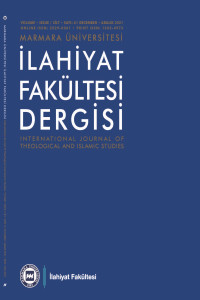Ahmet Yaşar Ocak. Tasavvuf, Velâyet ve Kâinatın Görünmez Yöneticileri: Tarihsel, Sosyolojik ve Eleştirel Bir Yaklaşım. İstanbul: Alfa, Nisan 2021. 446 sayfa.
Abstract
Modern zamanlarda Müslüman entelektüelleri en çok meşgul eden soruların başında İslâm toplumlarının Batı’ya nazaran neden geri kaldıkları meselesi gelmiştir. Müslümanların kendilerine yönelik sistemli özeleştirilerinin tarihi modernitenin ilk dönemlerine, Batı’nın buharlı makine devrimi zamanlarına kadar götürülebilir. Osmanlı’da Koçi Bey (17. yüzyıl) gibi âlim-bürokratlara hazırlatılan raporlar bunun bir örneğidir. 19. yüzyıla gelindiğinde ise bu sorunlar artık akut hâle gelmiş ve İslamcılık gibi isimlerle buna cevap üreten aksiyon ve düşünce ekolleri oluşmuştur. Ardından Cumhuriyet döneminde bu tartışmalara devlet eliyle tek bir cevap üretilmiş ve gerilemenin faturası genelde dine, özelde ise tasavvufa kesilmiştir. Nitekim 1925’te tekkeler kapatılarak toplumun ilerlemesinin önünün açılacağı düşünülmüştür.
References
- Ahmet Yaşar Ocak. Tasavvuf, Velâyet ve Kâinatın Görünmez Yöneticileri: Tarihsel, Sosyolojik ve Eleştirel Bir Yaklaşım. İstanbul: Alfa, Nisan 2021. 446 sayfa.
Ahmet Yaşar Ocak. Tasavvuf, Velâyet ve Kâinatın Görünmez Yöneticileri: Tarihsel, Sosyolojik ve Eleştirel Bir Yaklaşım. İstanbul: Alfa, Nisan 2021. 446 sayfa.
Abstract
In modern times, one of the most pressing questions for Muslim intellectuals has been the question of why Islamic societies lag behind the West. The history of the systematic self-criticism of Muslims can be traced back to the early periods of modernity, to the times of the steam engine revolution of the West. The reports prepared by scholars and bureaucrats such as Koçi Bey (17th century) in the Ottoman Empire are an example of this. By the 19th century, these problems had become acute and schools of action and thought that produced answers with names such as Islamism emerged. Then, in the Republican era, a single response was produced by the state to these debates, and the regression was blamed on religion in general and Sufism in particular. As a matter of fact, it was thought that by closing the dervish lodges in 1925, it would pave the way for the progress of the society.
References
- Ahmet Yaşar Ocak. Tasavvuf, Velâyet ve Kâinatın Görünmez Yöneticileri: Tarihsel, Sosyolojik ve Eleştirel Bir Yaklaşım. İstanbul: Alfa, Nisan 2021. 446 sayfa.
Details
| Primary Language | Turkish |
|---|---|
| Journal Section | Book Review |
| Authors | |
| Publication Date | December 16, 2021 |
| Published in Issue | Year 2021 Volume: 61 Issue: 61 |
Cited By
KENAN GÖÇER, YUNUS EMRE ASLINDA NE DEDİ? İZONOMİ TEMELLİ EKONOMİ-POLİTİK YAKLAŞIM, LEJAND YAYINLARI, İSTANBUL, 2021.
Türk Kültürü ve Hacı Bektaş Veli Araştırma Dergisi
https://doi.org/10.60163/tkhcbva.1362856
International Journal of Theological and Islamic Studies
International Journal of Theological and Islamic Studies is an open access journal
Click for Open Access Policy



